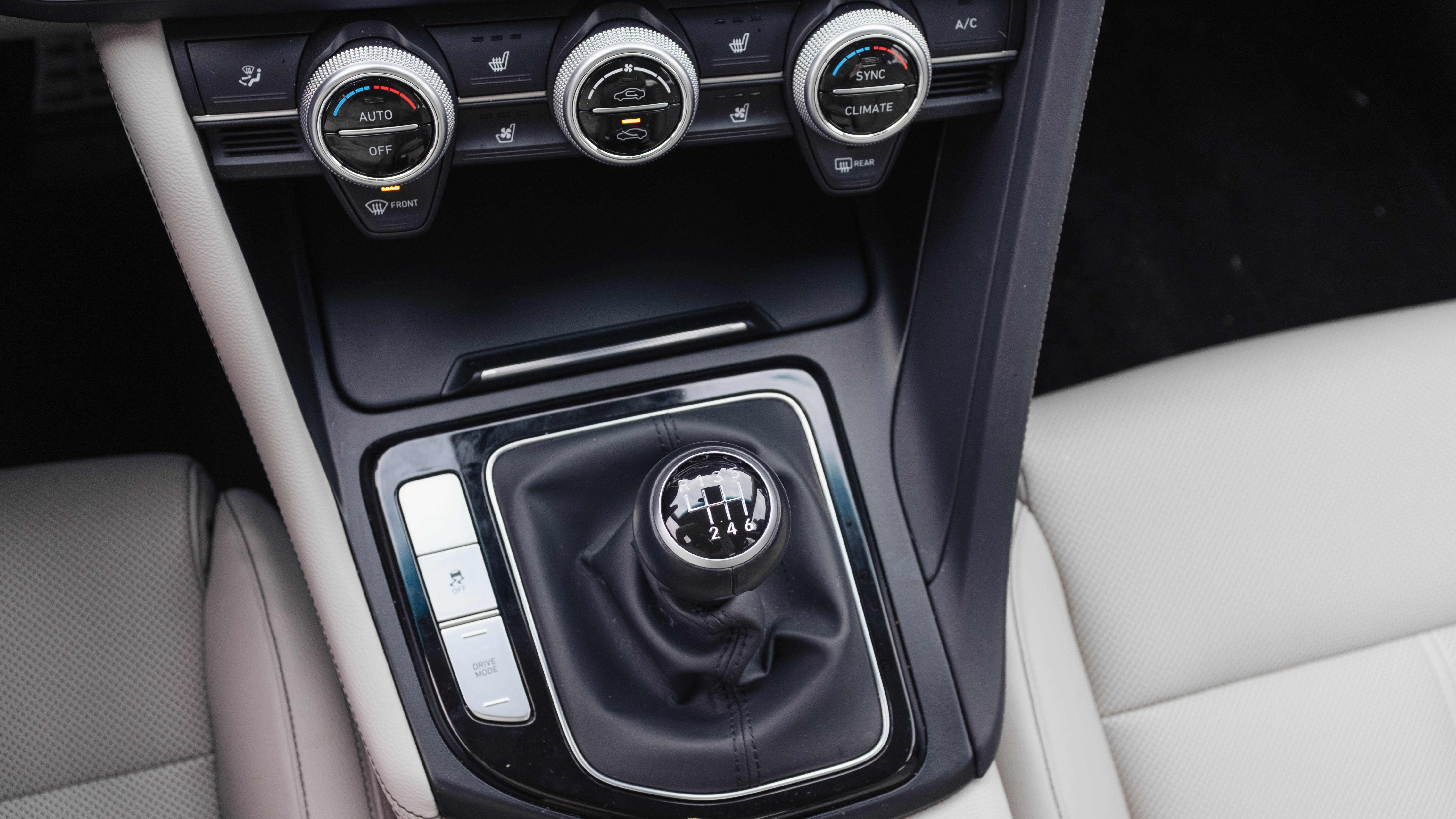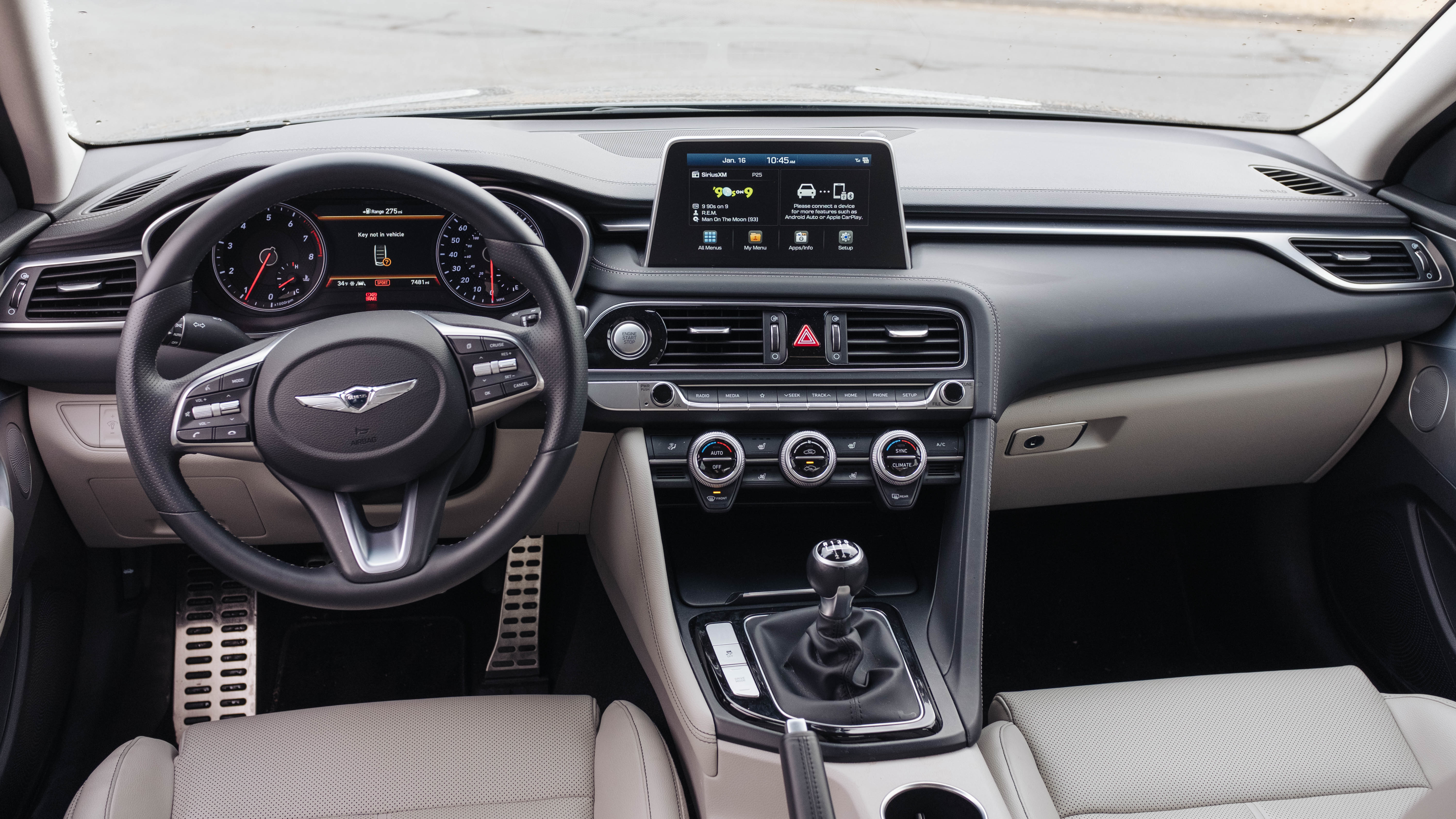The Manual Genesis G70 Sedan That Almost Broke Jalopnik
Genesis recently announced that it would cease production and sale of its Genesis G70 compact luxury sedan equipped with a manual transmission due to poor sales. Considering this is a car that was highly championed by this website and its audience, it's only right we try to learn something from its failure.
Full disclosure: Last year, Jalopnik received a Genesis G70 with a six-speed manual transmission to review during our stay in Detroit for the local auto show. I think four of us ended up driving it, none of us for any substantial amount of time, and after two meetings and three partially-drafted reviews, we gave up on publishing about the car. At least until now.
Why? Well, we'd already written about it, for one. But also, I think because it's just impossible to categorize it in a modern context. In a world so pointed towards automation, speeding things up and simplifying experiences, Genesis was pitching us all a car from a different age.
We all may be nostalgic for a time when many regular sedans came equipped with a stick because manual cars were cheaper, or perceived to be more efficient, and simply just more common decades ago. If you wanted an automatic transmission, something far more complicated involving computers and more electronics and higher reliability risk, you also had to pay more money. It was a luxury, and marketing it that way made the feature very desirable. Technology has naturally progressed away from human dependency and toward automation.
Think about it: In an older sedan with a manual, you would not have had a GPS informing you exactly how long your route would take, and the density of the traffic on the way there. You wouldn't have that comfort. You may not have even had air conditioning.
The car was a much more mechanical, rougher experience not a short time ago for most Americans. In a modern car where everything is laid out and automated for you, even the air conditioning, the manual transmission starts to look like it's holding you back compared to the rest of your interior.

I think the truth here is simple. The manual commuter car is dead, killed by capitalism's never-ending crusade of making the textures of life somewhat more comfortable. Even the shift-feel of the G70's throw felt smooth and luxurious. I don't think there is a buyer interested in it anymore, because a manual in a modern car just doesn't seem to fit with, well, everything else a modern car communicates to the driver. Unless it's a sports car, of course.
We don't have to like that this is the case. I'm just pointing it out.
The resulting Genesis G70 just kind of proved the theory in practice. In our last draft where we tried to cobble something together, those on staff who drove it said the manual-equipped G70 "lacked theater," wasn't sporty at all like you might infer, and that it shaped up to be a "restrained luxury car that happened to have a manual."
There's nothing wrong with that! Sure, some of us will just enjoy the mechanical connection to the driving experience. But to most, to be frank, it's not quite special enough to know, exactly, what to do with it. It's just no longer embedded in the meta of consumer car culture. Looking at American buying trends today, and how hype is generated, "restrained luxury" is always going to be a tough sell.
The lesson here is to apply the best tool for the best job. If the job is entertaining the driver, a sports car with a manual is perfect. If the job was gaining even the tiniest amount of sales margin against three global German manufacturers, then I respect Genesis for trying. But the G70 stick was probably the last of a breed we'll not see again.


